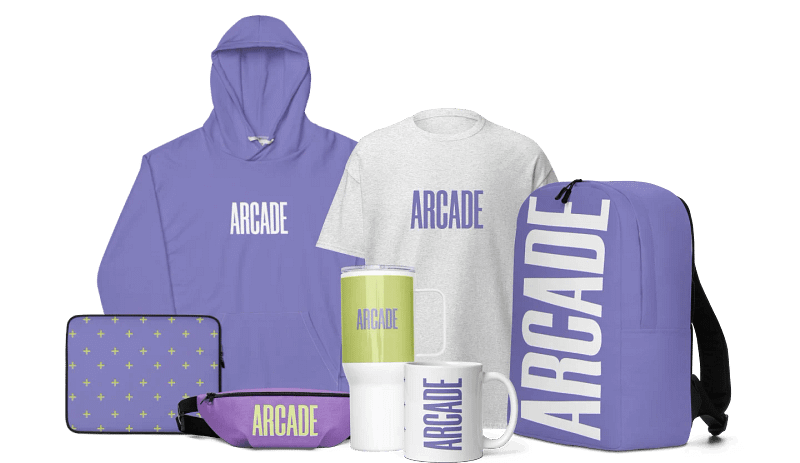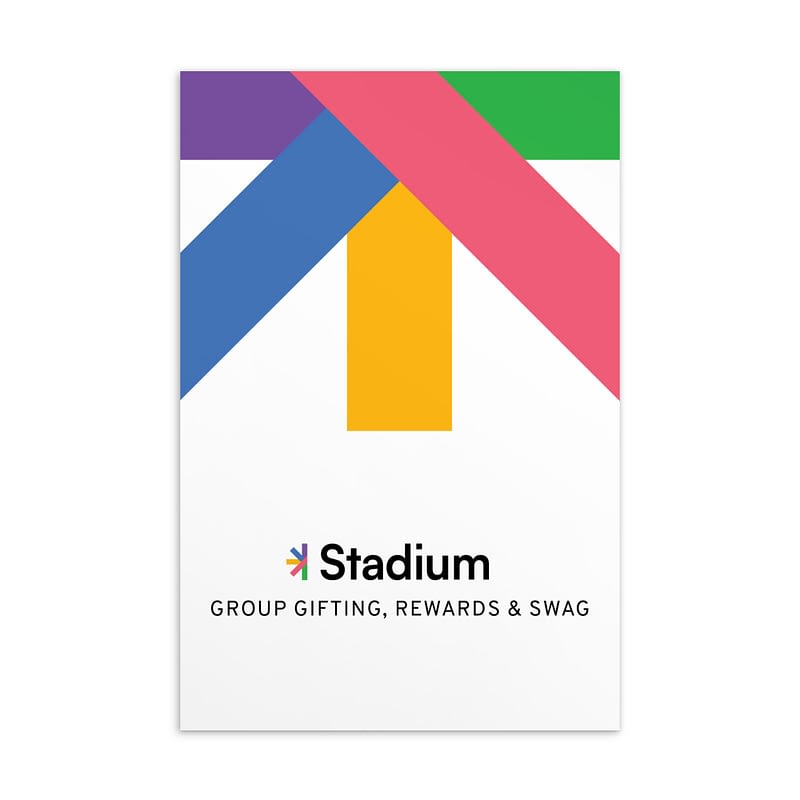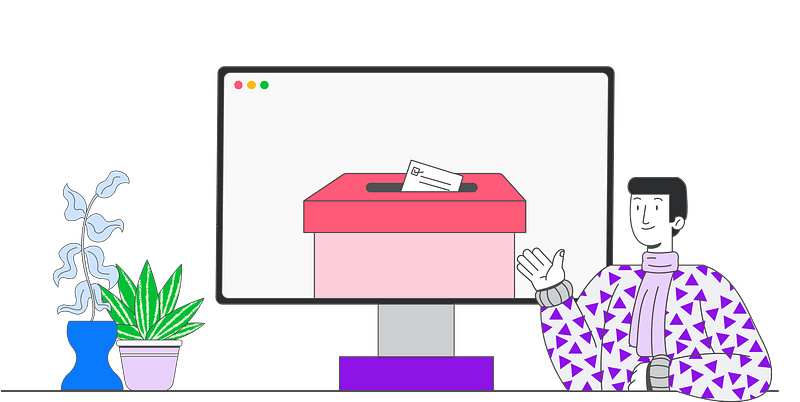STADIUM FOR REWARDS AND INCENTIVES
Global Rewards and Incentives Program Ideas for Employees and Advantages
Rewards and incentives - monetary and non-monetary - are tools used by employees, companies, individuals, organizations, or institutions to motivate desired behaviors or outcomes. Rewards and incentives ideas take various forms and are often employed in contexts such as businesses, education, healthcare, and personal development.

The value of Stadium
Global Reward and Incentives Ideas for Employees
Effective employee rewards and incentives program to show appreciation
Company swag rewards and incentives through Stadium offer more than just a present—they create lasting memories, fostering stronger connections between you and your audience. With swag incentives, elevate your brand's visibility and appreciation, ensuring your audience feels valued and motivated to engage further.


Cash rewards and incentives
Cash rewards and incentives for employees transcend transactional incentives, becoming meaningful gestures that resonate with your audience. Elevate motivation and performance with bonus rewards, fostering a culture of excellence and appreciation within your community.
Remote workday
Remote workdays may increase employee productivity, whether from a coffee shop or home. This allows the incentive receiver to break up their workweek slightly.


Peer-to-peer appreciation
Let's spread the love with Stadium's peer-to-peer appreciation rewards ! Acknowledge the amazing work of your colleagues with a simple gesture that goes a long way. Together, let's build a culture of support and recognition! 🤝#StadiumRewards #PeerAppreciation
Paid time-off
Offering paid time-off (PTO) as rewards and incentives is a powerful strategy to motivate employees and foster a positive work environment. By recognizing outstanding performance, promoting work-life balance, and supporting personal development, PTO rewards demonstrate appreciation for employees' hard work and dedication.


Gift cards are versatile rewards and incentives that provide recipients with the flexibility to choose their preferred items or experiences. They offer a convenient way for employers to recognize and motivate employees, whether for exceptional performance, achieving milestones, or as part of a rewards program. With a wide range of options available, including popular retailers, restaurants, and online platforms , gift cards cater to diverse preferences and interests. Additionally, they can be easily customized in terms of value and presentation, making them a practical and appreciated gesture of appreciation.

Employee work anniversary celebration
Celebrating employee work anniversaries is a simple yet powerful way to show appreciation for their dedication and contribution to the company. It fosters a sense of belonging and strengthens employee morale, ultimately contributing to a positive workplace culture.
Employee appreciation events
Employee appreciation events provide a platform to recognize and celebrate the hard work and dedication of your team. These events can range from simple gatherings like team lunches or casual outings to more elaborate ceremonies or awards nights. Regardless of the format, such events create opportunities for colleagues to connect, share successes, and feel valued by the organization. By showing genuine appreciation for their contributions, you not only boost morale but also foster a sense of loyalty and commitment among employees.


Introducing snack kits as rewards and incentives can be a creative and appreciated way to motivate employees and boost morale. These kits can serve as tangible expressions of appreciation, providing employees with a delightful treat to enjoy during their workday or at home. By offering a variety of options to cater to different tastes and preferences, such as healthy snacks, gourmet treats, or themed assortments, employers can personalize the rewards to suit their team's interests. Snack kits not only offer immediate gratification but also create a memorable experience that associates positive feelings with recognition, ultimately enhancing employee engagement and loyalty.
Years of service awards
Years of service awards serve as meaningful rewards and incentives to honor employees' loyalty and dedication to the organization. These awards recognize significant milestones in an employee's tenure, such as five, ten, or twenty years of service, and can take various forms, including plaques, certificates, or personalized gifts.


Weekly or monthly employee spotlights
Weekly or monthly employee spotlights offer a concise yet impactful way to recognize and incentivize outstanding performance within the team especially sales team . By shining a light on individual achievements, these spotlights not only celebrate success but also inspire others to excel. Through public acknowledgment and perhaps small rewards, such as gift cards or extra privileges, employees feel valued and motivated to continue their contributions.
Stadium: Global Rewards and Recognition Platform
Create your own company gift shops. Trusted by top companies.
170+
Countries within our fulfillment network
99.9%
Recipient satisfaction with Stadium gifts & experiences
14m+
Gifts fulfilled globally to date
Rewards Shops
Create a rewards and incentive gift store for different reward campaigns. Choose gift and brands as per your choice or let recipients select.
Swag and Snacks
Ensure your team stays aligned and maintains consistent branding! Streamline your assets, from designs to branded merchandise logos.
Team Events
Organize a virtual event with a host, entertainment, gifts, and more! Our adaptable system can fulfill your most imaginative remote event ideas.

AWARDED TOP 100 FASTEST GROWING PRODUCTS (2023) BY G2
REWARDS AND INCENTIVES: BENEFITS
Advantages of Rewards and Incentives in the Workplace
Higher work efficiency
Rewards and incentives can enhance workplace productivity since employees work harder to achieve their objectives and receive rewards. Sometimes, the prize is the primary motivator, but most of the time, the recognition that comes with it pushes an individual to push themselves further.
Better retention
A company’s success depends heavily on its workforce. However, over half of the businesses worldwide struggle to retain their top personnel. Employee turnover may be quite costly and time-consuming. To prevent losing top talent, ensure your team members feel appreciated, satisfied, and engaged. Rewards and incentives may excite and inspire employees while promoting excellent workplace habits.
Shining performance
Productivity is the driving force behind your firm. However, you will not receive their full potential if your staff are uninspired. The University of Oxford found that cheerful employees are 13% more productive. Employees who are incentivized, rewarded, and recognized for their accomplishments are considerably more likely to feel valued, respected, and happier at work and to go the additional mile.
More loyal employees
Employees want to feel that their leadership team appreciates and honors their efforts. Although employees might be content with recognition without an incentive, a motivating and meaningful reward demonstrates how they have contributed to their team and the business. Employees who feel valued and know their efforts are not in vain are likelier to stay with the firm and even refer available opportunities to their connections.
Competitive culture
You may create incentive programs for teams or individuals. In any case, getting the group to compete is a fun approach. A strong team will be able to challenge one another while also receiving rewards for their accomplishments. Competition is energizing, and leaders may observe how hard their team works to win.
More accountability
Team-based rewards or incentives, in which the entire team must achieve particular goals or perform specified acts to receive the reward, can foster a greater feeling of accountability. To thrive as a team, teammates keep one another responsible, while individuals hold themselves accountable to avoid disappointing their team. Accountability in the workplace often results in fewer errors, which is a significant benefit to firms.
Strong work culture
When you reward workers or provide employee incentives, you celebrate achievement in your organization, which may benefit the company’s culture. Employee incentives and incentive programs are more effective when related to your company’s values. Celebrating your workers’ excellent behaviors adds significance to the core principles, fosters a great work environment, boosts employee morale, and strengthens business culture.
Boosts morale
Getting acknowledged and earning a reward or incentive that appeals to the workers promotes morale. With the correct culture in place, colleagues should encourage each other to succeed so everyone can enjoy their achievements. Employees feel supported by their teammates and bosses, which boosts team morale since everyone is working toward the same goal: helping the firm flourish.
Increased motivation
Employees are highly motivated when they have something to strive for and know that at the end, they will receive a reward or incentive that they will appreciate. Most individuals are naturally competitive in the sense that they desire to stand out from their colleagues, so leadership prioritizes them for promotions, increases, and increased responsibility, and the same is true when getting awards. Employees are driven to perform well so that they may reap the benefits of incentivizing, but they are also motivated to make their bosses and team pleased.
Team collaboration
Coworkers should collaborate better if a leader develops incentives and rewards for the entire group as they work on a project or divides the group into several teams to focus on different aspects of the task. Employees collaborate toward a common objective, and each person is accountable for contributing to the project’s completion. It necessitates that people acknowledge each other’s abilities, collaborate to solve an issue, and work through disagreements to progress.
Difference Between Rewards and Incentives
Rewards and incentives are both used to motivate individuals or groups to achieve specific goals or behaviors, but they differ in several key aspects:
